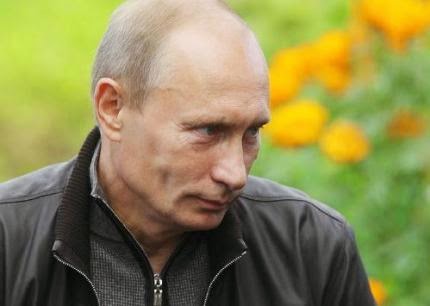| Online: | |
| Visits: | |
| Stories: |

| Story Views | |
| Now: | |
| Last Hour: | |
| Last 24 Hours: | |
| Total: | |
Putin’s Next Steps: Why He Does Not Fear NATO

His Russian psyche guides him; his accurate assessment of NATO emboldens him.
PJMEDIA
First: Russia is not a country, it is an empire.
Exactly 300 years ago, Russian forces first took Latvia and Estonia and called them their own. Seven years later, Peter the Great officially proclaimed Russia an empire and himself its emperor. Today, the Russian Federation contains 83 federated states, 23 of which are nominally autonomous constitutional republics.
Historically, countries were kingdoms, and kings were appointed by God. And emperors told kings what to do. Even when constitutionally prevented from being Russia’s prime minister from 2008 to 2012, Vladimir Putin still directed Prime Minister Dmitri Medvedev’s actions. Putin is, in his mind, Russia’s emperor.
Second: Russia has a love-hate relationship with Europe. It considers itself European, but hates that Europe doesn’t see it that way. Geographically, Europe is indistinct from Asia. It is a single landmass whose only boundary is a cultural one that exists along an amorphous line drawn somewhere between the Vistula River and the Ural Mountains. Just last month, you saw evidence of this continental divide during the Olympics: Russia considers the Caucasus, the mountain chain that played host to the Winter Games, to contain Europe’s highest peak, Mount Elbrus. Yet most Western Europeans consider Mont Blanc, on the French-Italian border, to be Europe’s tallest mountain, even though it is nearly three-thousand feet shorter than its Russian cousin.
Simultaneously being excluded from Europe in the minds of many Europeans, while recognizing that Europe’s cultural traditions are often superior to its own, Russia has cultivated a long-running inferiority complex. The further west the Russian Empire pushes its boundary, the more indisputable its claim that Russia is a European power and the greater it is able to demonstrate Russian superiority to Europeans.
Third: for much of the last century, Western Europe was incidental in a global contest between Moscow and Washington. Germany, France, and England, even if united, were all underlings incapable of self-protection without American might. The Soviet Union could easily have dominated Europe (or so they thought) were it not for those pesky Americans.
NATO, therefore, has always been a sore spot for Russia: it is the one entity that has been able to keep together the formerly warring West European tribes for more than sixty years. They still see the North Atlantic Treaty Organization as its first secretary general did — a means of keeping “The Russians out, the Americans in, and the Germans down.” And since Germany was allowed into NATO in 1955, only the first two of its original three goals of NATO still remain.
Reposted with permission



